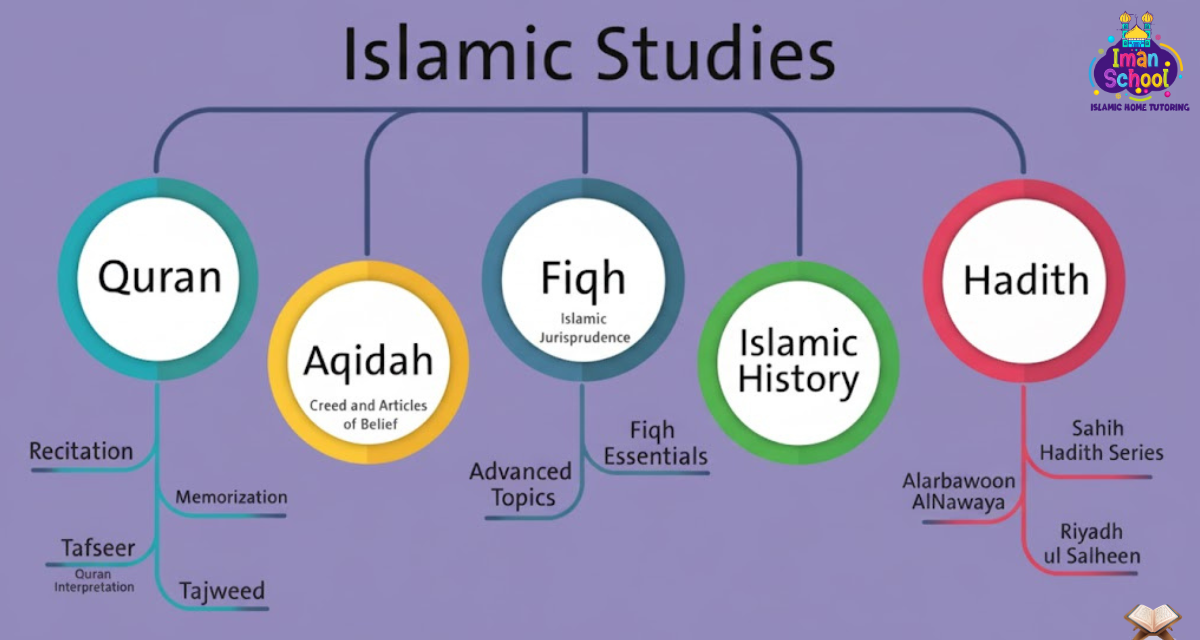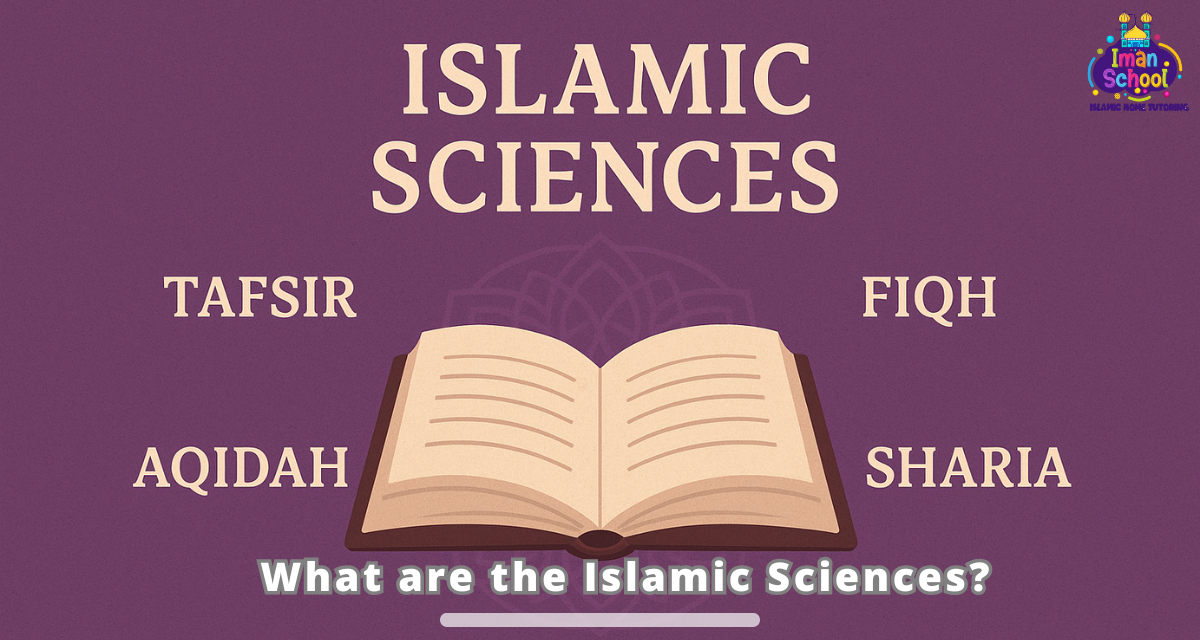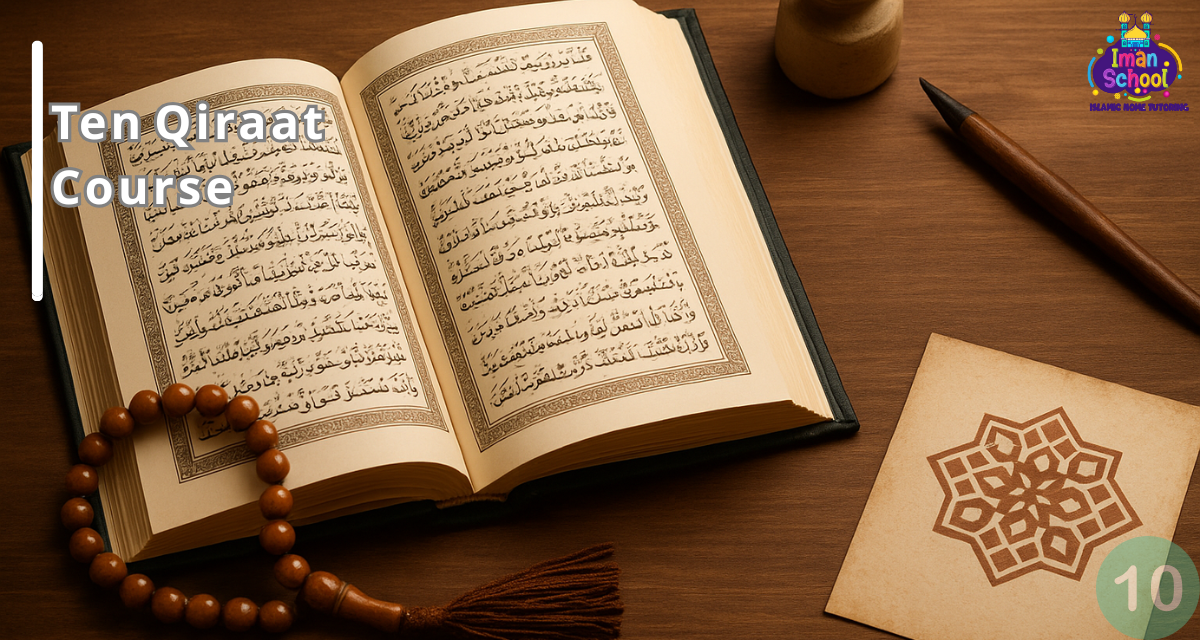For many Muslims in the West, the pursuit of religious education goes beyond simple worship. It involves a systematic study of the vast religious knowledge inherited from the Prophet Muhammad (PBUH) and his companions. This structured body of knowledge is collectively known as the Islamic Sciences. If you are asking What are the Islamic Sciences and where should I begin, this comprehensive guide will break down the foundational disciplines and explain why they are vital for every Muslim seeking deeper faith and practice.
Understanding What are the Islamic Sciences is essential for true comprehension of the religion.
What are the Islamic Sciences?
The Islamic Sciences (Al-'Ulūm al-Islāmiyyah) are the various fields of study dedicated to understanding the two primary sources of Islam: the Qur'an and the Sunnah. These Islamic Sciences are not rigid, but rather a dynamic structure developed by scholars over centuries to ensure accurate interpretation and application of divine law.
Understanding What are the Islamic Sciences is the key to mastering your religion, and knowing the scope of What are the Islamic Sciences provides a roadmap for learning.
Divisions of the Religious Sciences
The Islamic Sciences are generally categorized based on the obligation to study them, clarifying the scope of What are the Islamic Sciences for individuals:
1- Fard Ayn (Individual Obligation)
This category includes the foundational Islamic knowledge that every single adult Muslim must learn to practice Islam correctly. This covers the minimum requirement for correct Aqeedah (belief), Salah (prayer), Sawm (fasting), and basic Halal and Haram rulings relevant to one's daily life. For a Muslim in the West, this knowledge is critical for understanding basic morality and conduct, defining the essential core of What are the Islamic Sciences.
2- Fard Kifayah (Communal Obligation)
This category includes the specialized fields of major Islamic sciences where if a sufficient number of people in the community master them, the obligation is lifted from the rest of the community. Examples include mastering advanced Fiqh, Hadith criticism, and intricate Arabic grammar. These are the Islamic Sciences degrees online are built upon, representing the detailed study of What are the Islamic Sciences.

Classification of Islamic Sciences
The list of Islamic fields of study can be broadly classified into three main areas, providing a clear picture of What are the Islamic Sciences:
1- Textual Sciences (Naqliyyah): Focus on the transmission and meaning of the primary texts (Qur'an and Hadith).
- Tafsir (Exegesis)
- Hadith (Prophetic Narrations)
- Sīrah (Prophetic Biography)
2- Rational Sciences (Aqliyyah): Focus on interpretation, derivation, and logical consistency.
- Aqeedah (Theology)
- Usūl al-Fiqh (Principles of Jurisprudence)
3- Ancillary Sciences (Wasā'il): Tools required to understand the primary texts.
- Arabic Language (Nahw, Ṣarf, Balāghah)
The entire range of these branches of Islamic knowledge answers the question, What are the Islamic Sciences.
What is Tafsir and why is it important for understanding the Quran?
Tafsir is the science of Qur'anic exegesis or interpretation. It is dedicated to explaining the meanings of the Qur'an, clarifying its context (Asbāb an-Nuzūl), and extracting lessons from its verses.
Tafsir and Hadith meaning are intrinsically linked, as the Hadith provides the practical explanation for the Qur'an. Why study the Islamic Sciences like Tafsir? Because it ensures that verses are understood according to the intent of Allah and His Messenger (PBUH), preventing misinterpretation.
This is a foundational element of the Quranic sciences definition within the larger domain of What are the Islamic Sciences.
What is the difference between Fiqh and Sharia?
This is a common point of confusion when discussing What are the Islamic Sciences.
Sharia (Islamic Law)
Sharia is the divine, immutable law given by Allah (SWT). It represents the totality of Islamic commandments found in the Qur'an and Sunnah. What is Sharia (Islamic Law)? It is the way of life prescribed by God.
Fiqh (Islamic Jurisprudence)
Fiqh is the human, fallible science of deriving and extracting specific legal rulings (Ahkām) from the sources of the Sharia. What is Ilm ul Fiqh? It is the understanding or the legal opinion derived by a scholar or school of thought (e.g., the four Madhāhib). The study of Fiqh is a key component of What are the Islamic Sciences.
What are the Islamic Sciences related to Prophet Muhammad's traditions?
The Islamic Sciences related to the Prophet's traditions are collectively known as 'Ulūm al-Ḥadīth. This highly technical field ensures the authenticity of the narrations, detailing a critical part of What are the Islamic Sciences.
-
'Ilm al-Rijāl: The science of scrutinizing the narrators in the chain of transmission.
-
Hadith Terminology Explained: The rules governing the strength and weakness of a Hadith (Sahih, Dha'if, etc.).
-
Matn Criticism: Analyzing the text of the Hadith to ensure it doesn't contradict the Qur'an or known facts.
The compilation of the six major hadith books (Sihāh Sittah) required centuries of meticulous work in this field, proving why Tafsir and Hadith meaning are foundational to the Islamic Sciences.
What is Aqeedah (Theology) and why do Muslims study it?
Aqeedah is the science of Islamic theology or creed. It deals with the fundamental beliefs of Islam: belief in Allah, His Angels, His Books, His Messengers, the Day of Judgment, and Divine Decree.
What is Aqeedah (Theology) and why do Muslims study it? Muslims study it to protect their faith from doubts and misguidance. It answers critical questions about God's nature and the universe's purpose.
Understanding the basics of Islamic theology for beginners is a Fard Ayn obligation, and it is the starting point for What are the Islamic Sciences. Aqeedah vs Fiqh is simple: Aqeedah is about belief, and Fiqh is about action.
What is the difference between Usul al-Fiqh and Fiqh?
The difference between Usul al-Fiqh and Fiqh is similar to the difference between theory and practice within the Islamic Sciences:
-
Fiqh: The actual ruling (e.g., "Prayer is obligatory").
-
Usul al-Fiqh: The methodology used to derive that ruling (e.g., analyzing the verb command in the Qur'an to determine obligation).
Usul al-Fiqh simplified is the Islamic jurisprudence explained method; it determines which sources are valid (Qur'an, Sunnah, Ijma’, Qiyās) and how to weigh conflicting evidence, forming a vital part of What are the Islamic Sciences.

What are the primary Arabic language sciences needed for Islam?
To fully grasp What are the Islamic Sciences, one must first master the language of the texts. The primary Arabic language sciences are:
-
Nahw (Grammar): Deals with the endings of words and sentence structure.
-
Sarf (Morphology): Deals with word formation and verb conjugation.
-
Balāghah (Rhetoric): Deals with the eloquence and literary nuances of the Qur'an.
These form the absolute prerequisites for learn Islamic scholarship online and are ancillary Islamic Sciences.
What are the Islamic Sciences a beginner should learn first?
A beginner should focus on the Fard Ayn obligations. This translates to three core areas of the Islamic Sciences:
-
Aqeedah (Basic Creed): To establish correct belief.
-
Fiqh (Worship): To learn how to perform Wudu, Salah, and Sawm correctly.
-
Tafsir and Tajweed: To learn to recite the Qur'an correctly and understand the basic meaning of common Surahs.
Starting with these foundational Islamic knowledge disciplines is the wisest approach to the study of What are the Islamic Sciences.
FAQs
What is Sharia (Islamic Law)?
Sharia is the divine law revealed by Allah, encompassing all of His commands and prohibitions for the well-being of mankind in this life and the next. The study of Fiqh in the Islamic Sciences is an attempt to understand Sharia.
What is the difference between Sunnah and Hadith?
The Noble Hadith is the recorded statement, action, or silent approval of the Prophet Muhammad (PBUH). Sunnah is the broader concept: the living tradition or way of life of the Prophet (PBUH), often documented by the Hadith. Both are sources studied within the Islamic Sciences.
Is studying the Islamic Sciences required for every Muslim?
Only the foundational Islamic knowledge that enables a person to fulfill their five pillars of Islam and basic moral duties is required for every Muslim (Fard Ayn). Advanced study is Fard Kifāyah.
How long does it take to learn one of the main Islamic Sciences?
To achieve an intermediate level in any single science, such as Fiqh or Usul al-Fiqh, typically takes several years (3-5 years) of dedicated study of the Islamic Sciences.
What is the most important Islamic Science to study first?
The most important Islamic Science to study first is Aqeedah (Theology), as correct belief is the foundation upon which all actions and other Islamic Sciences are built. Following this, the Fiqh of worship is essential.
Enroll in Our Foundational Islamic Sciences Course
Are you eager to move beyond surface-level understanding and delve deep into What are the Islamic Sciences?
Iman School is the best online Islamic school offering structured, comprehensive courses for students in the West. We bridge the gap between traditional learning and modern convenience.
Our Foundational Islamic Sciences Course covers:
-
Aqeedah (Theology)
-
Fiqh of Worship
-
Tafsir and Hadith
-
Tazkiyat al-Nafs meaning (Purification of the Soul)




